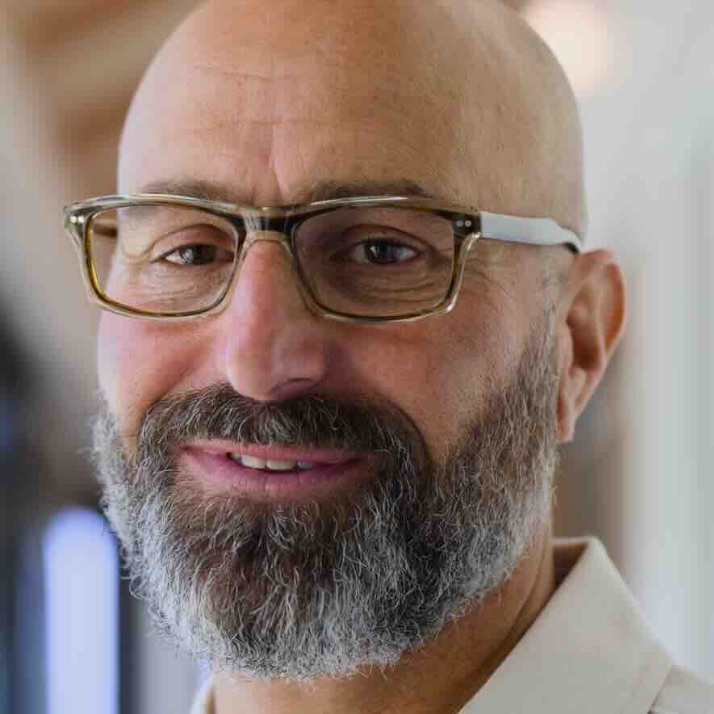Exploring Treatment Choices for Sex Addiction in St. Louis
Exploring treatment for sex addiction in St. Louis can include in-person therapy in neighborhoods like the Central West End, Clayton, and South City, as well as teletherapy if you’re farther out in St. Charles County or across the river in Metro East. Many people choose individual therapy for confidential, tailored support, while group therapy—often available through hospital systems near the Cortex/WashU-BJC area or community clinics—offers connection and accountability. If you’re commuting via I‑64/40, I‑44, I‑55, or I‑70, in-person sessions near your work or home can reduce stress, and teletherapy can help if MetroLink or MetroBus schedules don’t match your availability. Some providers offer hybrid options and evening or weekend appointments to fit around downtown work hours or school schedules. MiResource lets you filter for in-person or virtual care, individual or group formats, and practical details like parking, accessibility, and hours.
MiResource also helps you compare therapy approaches—such as CBT, psychodynamic, or 12-step–informed care—and find clinicians experienced with compulsive sexual behaviors. You can narrow results by insurance plans common in the area, including major Missouri and Illinois carriers, and see real-time availability to avoid long waits. Filters for location make it easy to target providers near MetroLink stations like Central West End or Shrewsbury, or along common commute corridors through Clayton and Brentwood. If privacy is a priority, you can search for telehealth-only or discreet office settings. With clear options and local context, MiResource supports a practical path to care that fits life in St. Louis.
Local Programs and Community Partners
St. Louis offers a strong network of peer-led recovery groups for compulsive sexual behavior, including local meetings of Sex Addicts Anonymous (SAA), Sexaholics Anonymous (SA), and Sex and Love Addicts Anonymous (SLAA) that gather in community spaces from the Central West End and Tower Grove to the Delmar Loop and Clayton. Many groups meet in church halls or library rooms near Forest Park, South Grand, and Soulard, creating accessible options for newcomers and long-time members alike. The St. Louis City Department of Health and the St. Louis County Department of Public Health, along with community clinics, provide confidential education, screening, and referrals that can help people connect recovery work with overall sexual health. These grassroots supports can be paired with therapists found through MiResource’s directory to build a balanced plan of accountability, skill-building, and ongoing care.
Regional nonprofits and public services also help residents navigate co-occurring stress, anxiety, or relationship challenges common in recovery. NAMI St. Louis offers family and peer programs that can complement addiction-focused groups, while Behavioral Health Response (BHR) provides 24/7 crisis support and linkage to services across the metro area. United Way 2-1-1 can guide callers to low-cost groups and sliding-scale counseling close to neighborhoods like Maplewood, Midtown, and Downtown. By combining these community-based resources with specialized Sex Addiction therapy options in MiResource, people in St. Louis can find steady support close to home.
Urgent Help for Sex Addiction in St. Louis
If you’re in immediate danger or thinking about harming yourself, call 988 (Suicide & Crisis Lifeline) or Behavioral Health Response (St. Louis’ 24/7 crisis line) at 314-469-6644 or 800-811-4760 for confidential support and mobile crisis response. For urgent, in-person help, go to the nearest emergency department: Barnes-Jewish Hospital Emergency Department (314-747-3000), SSM Health St. Louis University Hospital ER (314-257-5200), SSM Health St. Mary’s Hospital ER (314-768-8000), or Mercy Hospital St. Louis ER (314-251-6000). If you need same-day, non-emergency care, visit a local urgent care such as Total Access Urgent Care (314-961-7588; multiple locations). In St. Louis City and County, BHR can dispatch a Mobile Crisis Response Team through 988 or their hotline to meet you where you are. If you’re concerned about immediate safety, don’t wait—call now or go to an ER.
Key Insights Into Sex Addiction
Sex addiction refers to ongoing, hard-to-control sexual thoughts or behaviors that continue even when they cause stress or problems. Common signs include preoccupation with sex, secrecy, using sex to cope with emotions, and difficulties in relationships, work, or daily life. Understanding this pattern matters because it reduces shame, helps people recognize what’s going on, and opens the door to effective support. In St. Louis, knowing the signs can make it easier to find the right local help and take the first step toward balance.
Spotting Potential Warning Signs
Noticing patterns that feel out of control can be scary, but you’re not alone—many people in St. Louis reach out for support and find relief. If any of the signs below sound familiar, consider it a first step toward getting help, not a reason for shame. Small changes and support can make a big difference.
- Feeling “stuck on” sexual thoughts or urges that take up a lot of your day, even when you try to focus on other things
- Repeatedly trying to cut back or stop certain sexual behaviors but finding it hard to follow through
- Using sexual activity to cope with stress, sadness, loneliness, or boredom
- Needing more frequent, risky, or intense sexual experiences to get the same sense of relief
- Continuing behaviors despite relationship strain, work or school problems, financial issues, or health concerns
- Hiding, lying, or feeling significant guilt or shame about sexual behaviors
- Feeling restless, irritable, or low when you try to reduce sexual activity and then returning to it to feel “normal” again
What Contributes to Sex Addiction
Sex addiction can affect anyone in St. Louis, and it develops from a mix of factors—not from personal weakness or lack of willpower. Many people use sexual behavior to cope with difficult feelings or stress, and that can become a pattern over time. With understanding and support, healing is possible.
- Biological: Differences in brain reward and impulse control; family history of addiction; hormonal or neurochemical imbalances.
- Psychological: Past trauma or abuse; anxiety, depression, or ADHD; using sexual behavior to cope with stress, shame, or loneliness.
- Environmental: Early or repeated exposure to sexual content; relationship conflict or lack of support; easy online access and high-stress work or life environments.
How Sex Addiction Shapes Daily Life
Sex addiction can quietly take over daily routines in St. Louis, making it hard to stay present at work, school, and home. You might notice more time spent planning or hiding sexual behaviors, leaving less energy for the people and activities you care about. Stress, guilt, or shame can build, but you don’t have to face it alone. Getting care now can restore balance, protect your relationships, and help you feel more in control.
- Work performance and focus
- School attendance and grades
- Family responsibilities and trust
- Intimate and social relationships
- Physical health and sleep
- Mood, stress, and self-esteem
- Finances and budgeting
Effective Treatments for Sex Addiction
In St. Louis, effective, evidence-based treatments can help you regain control and rebuild a healthy, fulfilling life. With the right support, recovery is possible. Clinicians use proven therapies to reduce compulsive sexual behaviors and address underlying causes. Explore these options and take a confident next step.
- Cognitive Behavioral Therapy (CBT): Identifies triggers, challenges unhelpful thoughts, and builds coping and relapse‑prevention skills.
- Motivational Interviewing (MI): Strengthens internal motivation, resolves ambivalence, and supports goal‑aligned behavior change.
- Mindfulness‑Based Relapse Prevention/ACT: Builds urge‑surfing skills, increases self‑awareness, and helps you act consistently with your values.
- Group Therapy and 12‑Step Support (e.g., SAA): Provides peer accountability, shared strategies, and ongoing encouragement alongside professional care.
- Couples/Family Therapy: Improves communication, sets healthy boundaries, and repairs trust impacted by compulsive behaviors.
- Medication Management (e.g., SSRIs, naltrexone) when indicated: Reduces urges and treats co‑occurring conditions; coordinated with a qualified prescriber.
Quick Answers for Sex Addiction Therapy in St. Louis
1. Can Sex Addiction happen to anyone?
Yes—Sex Addiction can affect people of any age, gender, or background. It’s a complex behavioral health concern, not a personal failing. Factors like trauma history, co-occurring mental health conditions, high stress, or early exposure to sexual content can increase risk, but no single cause defines it. If you’re in St. Louis and worried about your sexual behaviors, compassionate help is available and recovery is possible.
2. Is Sex Addiction just stress or something more serious?
Everyday stress can sometimes raise sexual thoughts or behaviors, but it usually eases as stress does. Sex Addiction involves persistent, compulsive sexual urges or actions, loss of control, or continuing despite harm to relationships, work, or wellbeing. If you’re hiding behaviors, feeling distress or shame, or can’t cut back despite trying, it may be more than temporary stress. Effective, compassionate help is available in St. Louis, and treatment can help you regain control and feel better.
3. What are some misconceptions about Sex Addiction?
Many people think “sex addiction” is just an excuse for cheating or bad behavior, but it’s a real pattern of compulsive sexual thoughts or actions that cause distress and can be treated with evidence-based care. Another myth is that only men struggle with it; people of all genders and backgrounds in St. Louis seek help for these concerns. It’s also not the same as having a high libido—what matters is loss of control and negative impact on life, not desire itself. With compassionate therapy and support, recovery is possible, and local St. Louis clinicians can help you build healthier, safer patterns.
4. Can Sex Addiction improve without treatment?
Some people notice their sex addiction symptoms ease for a time, but lasting change without support is uncommon and relapse is common. Working with a St. Louis therapist can greatly improve outcomes by addressing root causes, building healthy routines, and preventing relapse. Professional care also helps you develop practical, lasting coping skills so you can feel in control and move forward with confidence.
5. How do I talk about my Sex Addiction with family or friends?
Start by sharing only what feels safe, focusing on recovery: “I’m getting help for Sex Addiction, and I want you to know I’m working on change.” Set clear limits about details: “I’m not ready to discuss specifics, but I’ll tell you how you can support me,” and “I’d appreciate support by checking in and respecting my boundaries.” Offer resources so loved ones can learn more, like Sex Addicts Anonymous (SAA) meetings in St. Louis and local therapists who treat compulsive sexual behavior. Remind them connection helps: you’re choosing honesty to reduce shame and build a stronger support network.
6. Who is qualified to diagnose Sex Addiction in St. Louis?
In St. Louis, “sex addiction” or compulsive sexual behavior can be assessed and diagnosed by licensed psychiatrists (MD/DO), psychologists (PhD/PsyD), psychiatric/mental health nurse practitioners, and state-licensed therapists such as LPCs, LCSWs, and LMFTs. These clinicians are trained to evaluate symptoms, rule out other conditions, and provide evidence-based care. MiResource only lists St. Louis providers who are properly licensed and vetted to deliver accurate diagnoses and safe treatment.
7. What usually happens in a first therapy session for Sex Addiction?
In St. Louis, your first session typically starts with warm introductions and a brief overview of what to expect. You’ll be invited to share a bit of your personal history and what led you to seek help, at your own pace. Together, you and the therapist will talk through current concerns and how Sex Addiction is affecting your life. You’ll then set clear, realistic goals and outline next steps so you leave with a supportive plan forward.













